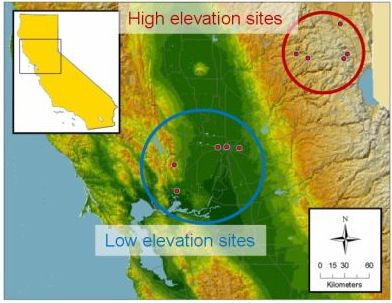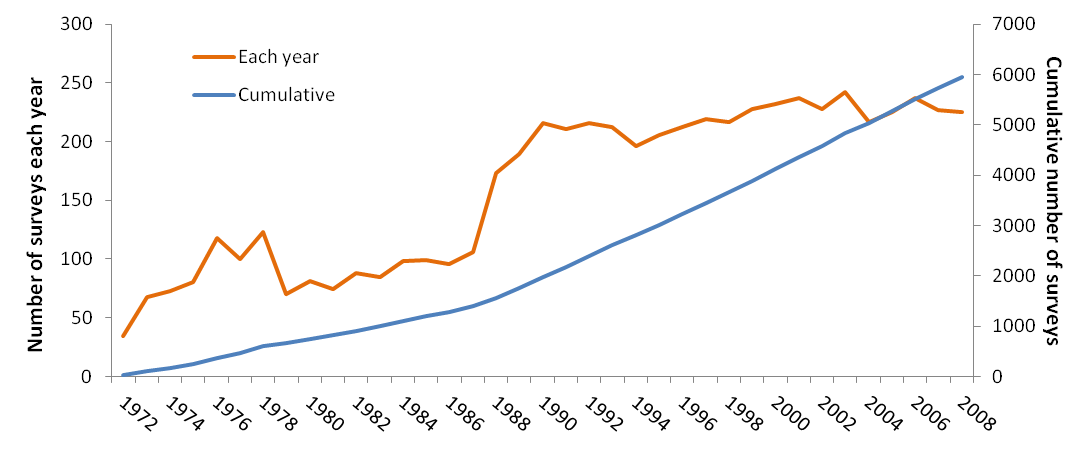ART SHAPIRO'S BUTTERFLY PROJECT
Website: http://butterfly.ucdavis.edu/
Coordinated by: Art Shapiro, professor of Evolution and Ecology at UC-Davis
Art Shapiro began monitoring 10 transects in 1972 and has been conducting bi-weekly monitoring of those sites since 1972. An 11th site is actually the site of a NABA butterfly count! Art's program is the longest continually running butterfly monitoring project in the world, predating even the British Butterfly Monitoring Scheme. |
 |
Project protocols
| Basic protocol |
Transects vary by length but are walked at a steady pace (?)... Transects are not divided into subsections. |
| Visit Frequency |
All sites but one are visited biweekly. The Willow Slough site is visited once per year, and those data should be accessed via the NABA site. |
| Effort Tracking |
The same person has surveyed all transects since 1972 (Art Shapiro). The amount of time spent on each transect is consistent between surveys but time spent is not tracked |
| Butterfly data collected |
Presence/absence of each species is recorded at each site. Since 199?, abundances are recorded at X sites |
| Taxonomic standard |
Modified NABA |
| Other data collected |
Weather, nectar? |
Data requests can be made through the main website. View metadata and species list here.
Survey Count

PUBLICATIONS USING PROJECT DATA:
Thorne, J. H., O'Brien, J., Forister, M. L., Shapiro, A. M., Building Phenological Models from Presence/Absence Data for a Butterfly Fauna, Ecological Applications, 16(5), 2006, pp. 1842–1853
Forister, M. L., Shapiro, A. M., Climatic trends and advancing spring flight of butterflies in lowland California, Global Change Biology, 9, 2003, pp. 1130-1135.
| Network partners: Butterfly monitoring groups that are currently part of our network. |
Collaborators: Institutions that support our efforts |
People: Meet the people who are in our network. |
|

